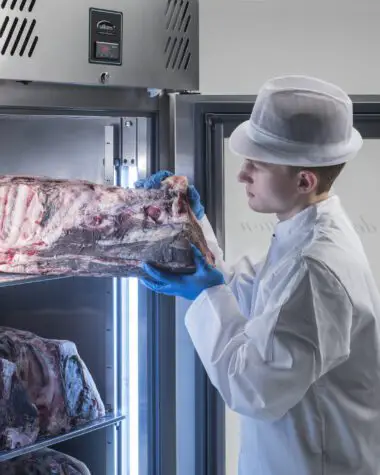Isn’t it easy to use a dishwasher? You fill it up, add a pod, hit the start button, and lo and behold! Your dishes are cleaned in a jiffy. This handy kitchen equipment has brought so much ease to almost every family, saving you time and money.
But let’s be honest; there have been instances when we’ve taken the dishwasher for granted. And this may have an impact on how the dishwashers work, even the best ones, potentially costing you money. So it’s time to appreciate them more; here are some common dishwashing mistakes you should have realized you were making and should quit doing before it’s too late.
1. Pre-rinsing Dishes Before Loading
Admit it: we’re guilty of pre-rinsing your dishes before loading them to help our dishwasher remove food scraps. We’ve got some bad news for you: it’s unnecessary. Pre-rinsing can waste up to 2.5 of water per minute and fool your dishwasher into thinking your dishes are cleaner than they are.
2. Using the Wrong Cleaning Products
We hate to break it to you, but not all cleaning products are considered equal. Aside from price, there is a significant difference between a good cleaning product and a terrible one.
That is why evaluating what you put in your dishwasher is critical. Cheap detergents are usually not a smart option because they may include strong chemical compounds that might wear down your delicate dishes and may not clean them adequately.
It is also important to read the manufacturer’s instructions on how to use your cleaning product. Excessive use of the dishwasher tablets or capsules does not guarantee that your dishes will be cleaner.
Related Article: Dishwasher Pods: 7 Cleaners for Crystal Clear Dishes
3. Not Using Rinse Aid
Modern dishwashers consume less water, which is one of the many advantages of having this appliance in your kitchen. This, however, increases the likelihood that your dishes will not be cleaned. This is when the rinse aid comes in handy. Despite this, few households use this cleaning product because it can be pricey, and we don’t want that. You may be surprised to learn that a rinse aid provides far more than you realize.
The Benefits of Using Rinse Aid
- It makes your dishes cleaner and more gleaming
- Removes bacterial build-up from your dishes and equipment
- Soften hard water that stains your dishes
Fortunately, there are a few cleaning solutions on the market that already include rinse aid. But if yours doesn’t, it’s time to think about including this in your arsenal.
Related Article: Amazon’s Best: Dishwasher Rinse Aid, Reviewed
4. Improper Dish Loading
Thanksgiving dinner is finished, and you’re left with a mountain of dishes waiting for you. Thanksgiving dinner is over, and you have a stack of dishes waiting for you. So you decided to squeeze all of them together, Tetris-style, to get them all cleaned in one session.
We’ll stop you right there because you’re doing it wrong. Overloading affects the effectiveness of your dishwasher by exposing your dishes to less water and detergent to clean them.
Tips for Proper Dish Loading
- Don’t compress your dishes. Separate your utensils and plates from each other and at an angle.
- Glasswares should be placed upside down
- Do not stack bowls on top of each other
- Do not block the spray arms
- Leave large pans and ladles until the next load or wash them by hand
5. Not Loading to Full Capacity
Operating a dishwasher half-empty is just as bad as overloading it. It costs you the money you don’t need to spend on electricity and cleaning supplies.
Furthermore, your delicate items will likely be damaged as they tumble through the dishwasher. That is why it is best to wait until you have a full load of dishes or, better yet, rely on plain old-fashioned handwashing if you have the time.
6. Using the Wrong Cycle
Dishwashers, like other appliances, have various cycles that we may use to clean and dry our dishes. However, if you know little to nothing about dishwashers, you may be utilizing the incorrect cycle for your dishwasher to properly clean your dishes.
Make sure to familiarize yourself with your dishwasher by reading the manufacturer’s instructions to get an idea of the appropriate cycle based on your load.
7. Loading Non-dishwasher Safe Items
Dishwashers have proven to be excellent cleaning tools not only for dishes but also for other household items. Yes, you read that correctly.
Let’s be honest. Some of us have been guilty of loading our dishwashers with non-dishwasher-safe items such as cast iron skillets, wooden cutting boards, etc. It’s time to break that habit since it might be causing you harm without your knowledge when exposed to hot water, wood fractures, and breaks, while cast iron can rust and ruin other dishes.
A dishwasher is a hostile environment that, rather than cleaning, does substantial damage to your goods. Because of this, it’s important to check whether an item is “dishwasher safe” before putting it in.
Non-Dishwasher Safe Kitchenwares
- Gold trim plates
- Crystal and hand-blown glasses
- Travel mugs and cups
- Knives
- Copper Utensils
- Wooden cutting boards, spoons, and forks
- Kitchen utensils with hallowed handles
- Cast iron pans and aluminum pots
- Takeout Containers
- Labeled Containers
Related Article: 17 Things You Can Put in Your Dishwasher (That You Didn’t Know)
8. Leaving the Door Closed After the Wash Cycle
Closing your dishwasher’s door immediately after a cycle may not be a smart idea. Even though your loads are already dry, there’s still a potential that there’s leftover moisture within, producing mold buildup and contaminating your dishes.
9. Lack of Regular Filter Cleaning
Closing your dishwasher’s door immediately after a cycle may not be smart. Even though your loads are already dry, there’s still a potential that there’s leftover moisture within, producing mold build-up and contaminating your dishes.
FAQs
What are the Most Common Problems I Might Run into with My Dishwasher?
| Description | The Problem | Solution |
|---|---|---|
| Dishwasher isn’t doing a good job of cleaning | You find granules of food residue on your plates after the wash cycle. | To troubleshoot, ensure that nothing has caused the dishwasher to malfunction, such as utensils that might block the spinning motion or incorrect dish loading. Check the stained screen for any obstruction caused by food debris, and ensure your dishwasher’s spray arms are operating properly. If you find water stains on your dishes instead, this is most likely due to hard water, which should be treated with a water softener detergent. |
| Dishwasher isn’t doing a good job of drying | Your dishes are visibly damp after a wash cycle. | Using a multimeter, check your dishwashing machine’s heating element and high-limit thermostat to ensure they are working correctly. If you discover an anomaly, contact the nearest maintenance man. |
| Dishwasher isn’t doing a good job of draining | Your dishwasher is swamped with water after a wash cycle, leaving a mess in the kitchen. | If the valve in the dishwasher’s drain sump isn’t operating correctly, replace it with a new motor, drain sump, and valve as much as possible. To get the best result, consider reaching out to experts. |
| Dishwasher is leaking | You found a large mess on your kitchen floor caused by the dishwasher. | Check whether the leak is caused by a crack or damage in the drainage hose, pump seal, or door seal, and replace them as quickly as possible with brand-new parts. |
| Dishwasher smells bad | You smelled an unpleasant odor emanating from the dishwasher. | To avoid this problem in the future, check the bottom of your dishwasher for any traces of food particles or a chunk of plastic container that has melted on the heating element and carefully scrape it off. |
| Dishwasher doesn’t work | Your dishwasher suddenly stopped working upon using it. | First, make sure your dishwasher is correctly plugged in. Second, examine the wire for any damage and wrap it. Finally, evaluate whether the door latch works well to establish whether you need to repair the damaged parts. |
| Dishwasher makes a lot of noise | You notice your dishwasher making strange and loud noises upon the wash cycle. | Check to see whether your spray arms need clearance to whirl. It would help if you also inspected your dishwasher for a loose bearing ring or a faulty pump and spray arm seal and replaced the defective parts as soon as possible. |
| Dishwasher doesn’t dispense detergent | Your dishwasher detergent dispenser appears to be stuck and not pouring. | Check your detergent dispenser for any jammed lumps of hardened detergent and, if feasible, remove them. Consider using less or switching to a liquid detergent to avoid this problem. |
| Dishwasher’s control doesn’t work | Your dishwasher is malfunctioning upon use. | While this issue is difficult to diagnose, check if the door is correctly closed, as this is one of the most common factors. You may also call your local repairman to help you troubleshoot the situation. |
| Dishwasher’s lights are flashing | Your dishwasher suddenly stopped responding and began flashing lights. | Check the user handbook for your dishwasher to find out what the flashing light indicates and how to troubleshoot it. You can always count on YouTube for video tutorials if you still need the manual. |
| Dishwasher runs too long | You’ve observed that your dishwasher’s wash cycle takes too long or needs to be completed. | Various elements contribute to this issue; please check that your hot water is switched on in the sink. To eliminate the cold water from the pipes, switch on the hot tap nearest to the dishwasher first. It would help if you also double-check that you selected the right setting, as such a wash cycle takes a long time to complete. |
Bottomline
Dishwashers are one of the most useful pieces of household kitchen equipment. However, it can be harmful and cause headaches if not handled appropriately. We hope that by providing you with this list of unhealthy habits, we can help you break them and avoid needing to replace your dishwasher.
To learn everything there is to know about everyone’s favorite kitchen partner-in-crime, click here to read the definitive dishwasher guide.









